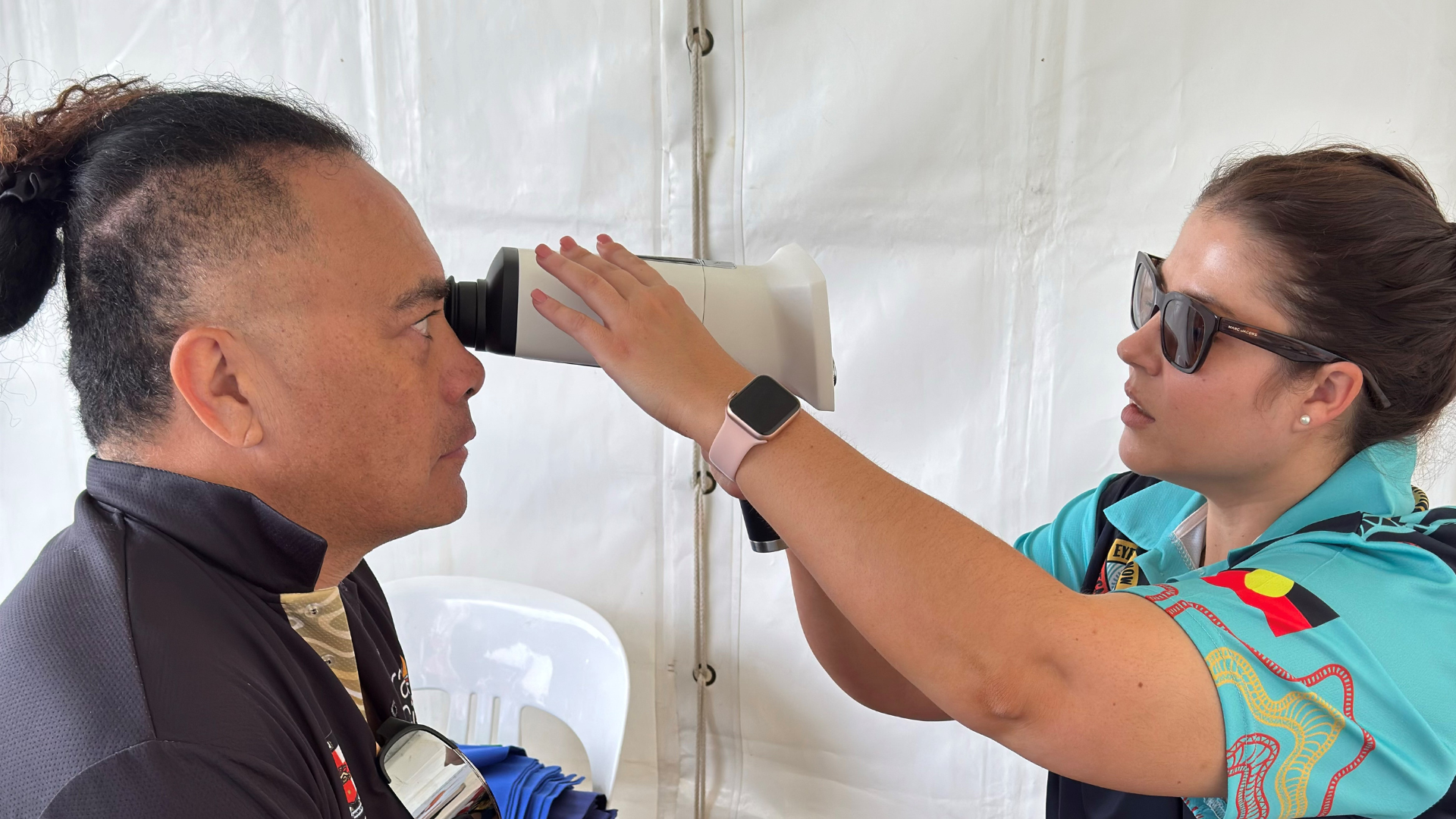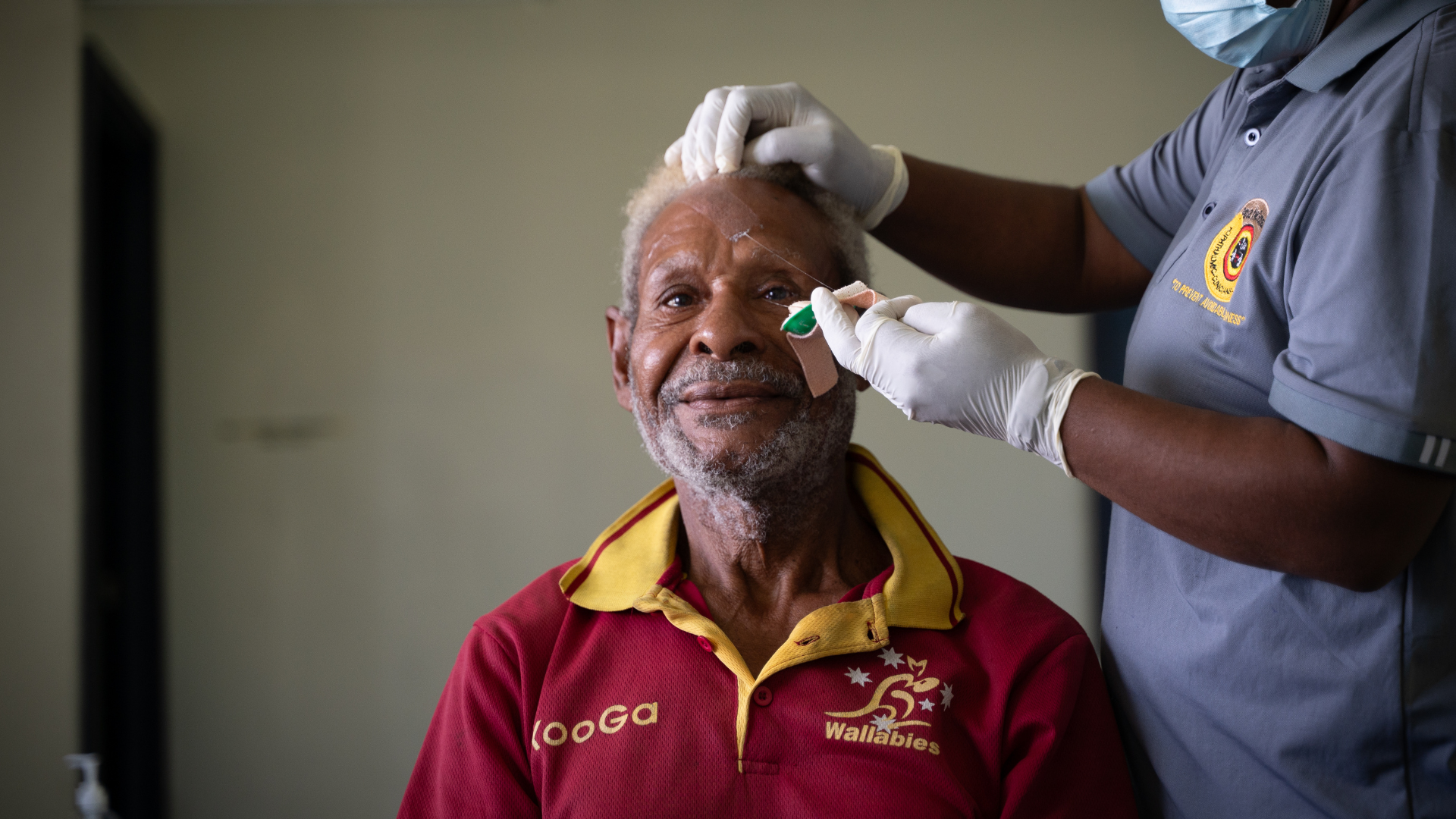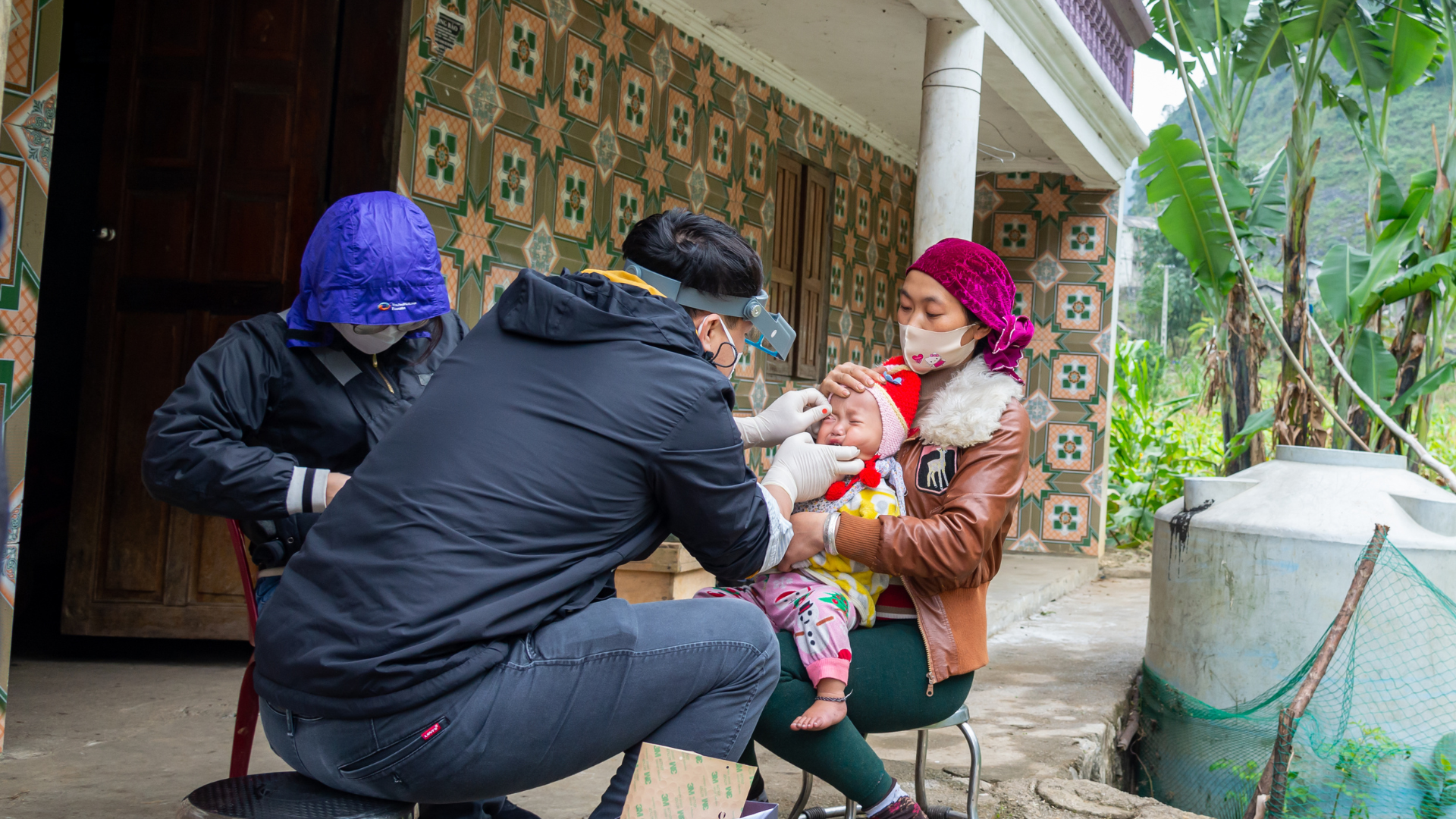In their father's footsteps

In the makeshift operating theatre of a monastery north of Kathmandu, Dr Sanduk Ruit sets an incredible pace. Every seven minutes the door swings open and the monks lead another patient to the table. He works with flawless precision. Nepalese love songs play softly on an iPod beside him. He is barefoot – it helps him operate a foot pedal that focuses the microscope. This is what he loves to do and it comes shining through with every movement he makes. This barrel-chested man has already restored sight to more than 120,000 people.
At the monastery, Dr Ruit is not planning on slowing down. Within three days, he has restored sight to more than 250 people who would otherwise have remained blind for the rest of their lives.
Although Ruth and Rosa Hollows, the youngest of Fred and Gabi's children, have never seen Dr Ruit work, they've known him all their lives as a friend of their father. The twins are 24, and having finished their studies, are making their way in the world. Rosa is a carpenter, and Ruth has graduated from The University of NSW and is embarking on a career in project management. They are keen to roll up their sleeves, help out as volunteers and gain a first hand view of the pioneering work their father began but never saw finished.
Download Cameron Stewart's full article for The Weekend Australian Magazine.
At Kathmandu’s Tilganga Institute of Ophthalmology, which is training an army of eye doctors in Dr Ruit’s technique and revolutionizing eye health around the world, everything hums with efficiency and cutting edge technology.
The gleaming, four-storey hospital looks like it belongs to a modern city, rather than the dusty streets of one of the poorest nations of the world. Just metres away, by the Bagmati River, the ancient Hindu ritual of cremation on funeral pyres fills the air - and river - with ash.
But it is the hospital's frontier work that they are most keen to see. Fred Hollows and Sanduk Ruit, who met in Nepal in the 1980s, shared a fierce determination that the world’s most impoverished people should have access to world-class eye care, no matter where they live. In doing their part to achieve this goal, the staff of Tilganga regularly take their high-quality, low-cost care to patients living in remote villages.
Every few months, they pack battered buses with microscopes, beds and medicine, and navigate treacherous mountain passes to perform cataract surgery on blind people who may not be aware of the treatment available to them. Many are illiterate. Many families can't afford for one of their members – usually a young woman - to take a week off work to take their blind relative to Kathmandu. Others are simply unable to afford the bus fare.
The Pullahari monastery is one of the most picturesque places to restore sight in the world. Perched on a ridge overlooking the valley, it's surrounded by pine forests and the foothills of the Himalayas.
Its spiritual leader, His Eminence Jamgon Kontrol, believes in community service; for this camp, like many others before it, the monks have put down their prayer beads and transformed their home into a makeshift hospital. Soon after arriving, Ruth and Rosa are busy helping them lug heavy microscopes up the stairs, and building beds out of steel frames, in what is usually a computer room.
Every day more buses arrive and a human river surges into the waiting rooms; women in traditional tunics, men in patterned cloth hat. Many are in clothes that that are little more than tatters. Often they are barefoot and stooped, their faces etched from a life of hardship.
The maroon-robed shepherds guide those seeking help up the stairs to the examination rooms. They feed them lentil soup and rice at lunchtime and usher them onto thin mattresses at night. The youngest monks swirl through the reception areas with giant kettles of sweet milky tea. One sits quietly sits on a wooden bench holding the hand of an elderly woman shaking with nerves before her operation.
We hold our breath as Dr Ruit removes their cataracts, some the size of a small pebble. After he has taken them out, the eyes look, as the late author David Oliver Relin put it, “like windows that have been washed clean.”
Dr Ruit never seems to hesitate or tire. He works, and lives, as if he's racing against the clock. He's 60, but when asked if he has any plans to retire, he holds up his hands, and says with a wry smile. “Oh I think these hands will keep going for a while.”
Watching patients have their patches taken off the next day, and their sight restored after years of blindness, is truly moving. Blind people in Nepal don't have Braille, or canes, special education programs or guide dogs. They are shut away in a private world of darkness. They stare vacantly at the floor, shuffle when they walk, and look up only when someone talks directly to them, or touches their shoulder or hand.
But sitting on the steps of the temple in rows, their patches taken off, they slowly come to life. Smiles spread across their faces as they re-acquaint themselves with the world. They look shyly at the person sitting next to them. Look down and stroke their new clothes, a gift from the monks. Peer up at the sky. Gaze out at the sun-splashed courtyard with its beautiful view of Kathmandu valley. Sit up straight. Fix their hair. Hold hands. One woman is so ecstatic she dances.
Dr Ruit examines each of them. “Touch my finger,” he says, holding out his index finger in front of them. “Touch my nose,” he says to others. He is pleased with the results. “They should all be able to see quite well very soon.” When asked what she thinks of Dr Ruit, one patient says, “He is like a God.”
They return home, this time able to walk back to their villages without help. Dr Ruit doesn’t have time to say goodbye – he has a meeting to attend the next day at Tilganga. Changing the world one eye at a time is an ambitious undertaking, and Dr Ruit does not have a minute to lose.
For more about the Hollows twins' journey back to Nepal, watch the three-part series 'In Fred's Footsteps'.
Related articles

Koori Knockout raises eye health awareness among thousands on World Sight Day

Eyes on the Future: Australian and New Zealand Governments Invest in Centre for Eye Health in Papua New Guinea

